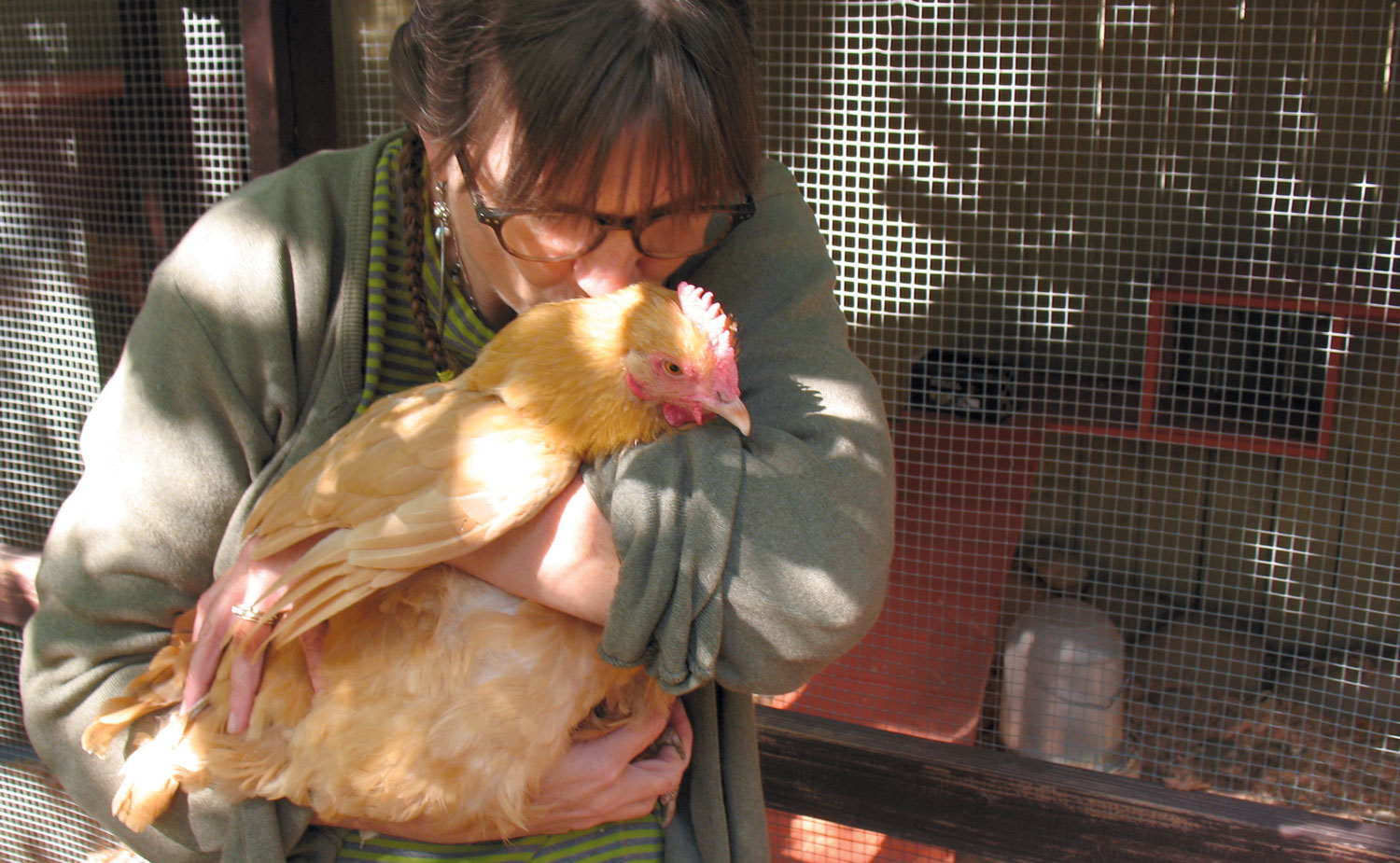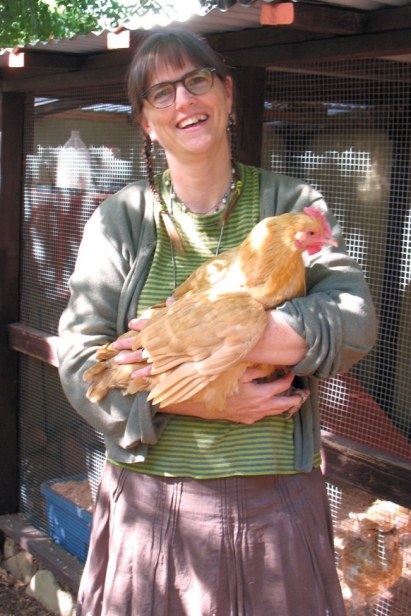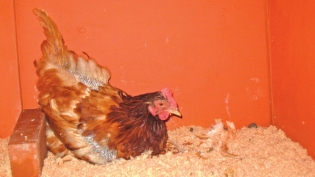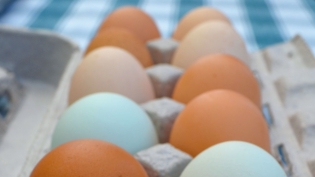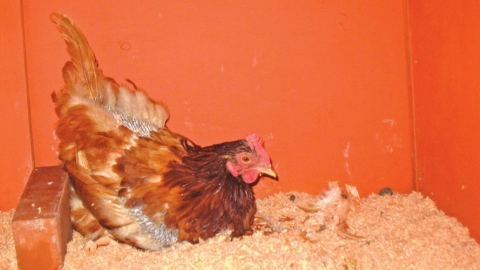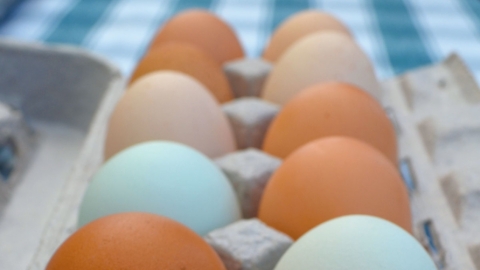Birds of a Feather: Raising Backyard Chickens
More Ventura County families these days are looking to experience the delight and flavor of fresh eggs–really fresh eggs–gathered from their backyard chickens for the morning's breakfast.
"Fresh eggs are so much more flavorful [than store-bought]," says Kim Hamilton, owner of Blue Hill Farms in Ventura, which breeds and raises a variety of poultry.
Raising backyard chickens is "more [popular] now than ever," she says. The trend, which goes hand-in-hand with organic gardening, began to take off about five years ago, with First Lady Michelle Obama's healthy initiatives and White House vegetable garden.
Interest, she says, is coming from locavores, foodies and people who are looking to have more control over what they eat. "When there's a news story about salmonella in eggs or poultry, I see an uptick in calls."
People who purchase chicks from Wachter Hay & Grain want to know and understand where their food is coming from, adds Tami Brooks, assistant manager of the Ojai store. "There's a grassroots trend taking hold where people want to give their kids a better understanding of where their food comes from and to experience it together."
Plus, notes Tami, chickens are "unique, fun, interesting little creatures."
Chris Brennan and her husband, Jim McCarthy, were ahead of the backyard chicken movement. They took up the challenge in 2001 when they got their first chicks as a housewarming gift.
"We actually got three baby chicks and a baby turkey," says Chris, stroking the feathers of her plump and docile hen, Buffy, at her Meiners Oaks home. "After I did some research and saw how big the turkey would get, I exchanged it for another chicken. Buffy is the last of the originals; we call her 'Buffy the Toughie'."
Raising chickens and having a vegetable garden can be a symbiotic relationship, with the chickens eating grubs and insects and providing nutrients for the soil with their manure. A backyard coop can give you a sense of independence, producing a healthy product on the land where it is consumed, and contributing to the sustainability of your food network.
According to Chris, who's had birds of one kind or another since she was 10 years old, raising chickens wasn't a big stretch and is a good fit.
"I love to have a chicken in my lap," she says. "And the great thing about chickens is you don't have to feel too guilty when you don't have a lot of time to spend with them one on one. They aren't like a parrot or a cockatiel," she says, adding that they too require attention in terms of food, water and cage cleaning.
Chris now has Buffy, a Buff Orpington, and Buffy's coop mates Flo, a Bantam Polish, and Rosie, one of the most popular types of backyard chickens, a Rhode Island Red. Chris describes Flo with affection, as "a little overbred and a nervous Nellie" and noting Rosie was "broody" all summer.
"When they're broody, chickens puff up their feathers and spend most of their time in their box acting like they're sitting on eggs, even though there are no eggs," says Chris. Rosie is usually her best layer, but when hens are broody they don't produce any eggs.
Many of her neighbors have chickens. Quiet cackles and contented clucks are heard throughout her Meiners Oaks neighborhood.
"I would check with your neighbors just to be nice," says Chris, whose coop sits under the shade of a huge avocado tree. "And don't put your coop right up against your neighbor's fence unless it's OK with the neighbor. … Our coop is about 15 by 6 feet. We made a rough design for it after looking at lots of Internet photos for inspiration. We built part of it and then expanded it at some point."
And beware the rooster. Many towns and cities don't allow them. (See chart on the next page.)
"Once we got a rescue chicken that started crowing," says Chris. "Our Rosemary turned out to be a boy and went to a farm. I know I wouldn't want to wake up to a crowing thing every morning. … And if people want to buy those cute adorable baby chicks, they've got to remember no one can guarantee the sex of a chicken; you have to have a backup plan in case you get a rooster. On the other hand, you can usually tell around two or three months, so I'd wait to be safe..."
She started feeding her "ladies" laying pellets and fresh greens when they came of egg laying age to make sure they got proper nutrition.
"You can buy different types at any feed and grain store," says Chris. "When they are outside of the coop they eat certain plants. They need green in their diet. You can never tell what they'll go for and as a gardener it can be quite a challenge … it's a balance.
"I put a low fence around what I want protected to discourage them. They also go for the bugs, which is great. They eat little bits of gravel and sand that helps them digest their food. I also give them some table scraps. When we go out to eat and have leftovers, I take them home to the girls. They really love leftover corn chips."
As rewarding as it can be raising chickens, there are challenges. Raccoons are definitely a problem; if they get to a chicken, it's a goner. She and her husband built their coop with rocks and wire going under and around the base to keep pests out.
"The chickens go in at sundown and roost, as they can't see at night." She has an alarm clock app on her iPhone to help her remember to close the coop door. "All you need is to forget one night and the raccoons get in. I've lost two or three chickens over 13 years."
According to Chris, rats and mice can also be a problem. "If they get in the coop, it makes a perfect environment for them: sheltered from their predators and the rain, with food and water provided. It's like a safe house for rats."
Yet Chris can't imagine life without her chickens, she says.
"You have to kind of like them as pet-like creatures," says Chris. "They do get old and stop laying eggs. You have to decide if you are going to keep them and support them in their freeloading years."
That's what they've decided, and Chris is now waiting to add to her brood.


